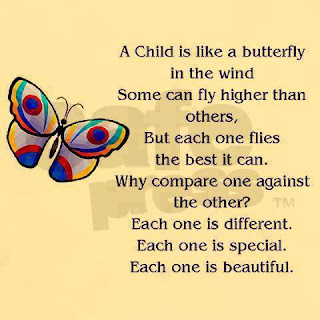Position Statements and
Influential Practices
- NAEYC. (2009). Developmentally appropriate
practice in early childhood programs serving children from birth through
age 8. Retrieved May 26, 2010, from http://www.naeyc.org/files/naeyc/file/positions/dap
- NAEYC. (2009). Where we stand on child
abuse prevention. Retrieved May 26, 2010, fromhttp://www.naeyc.org/files/naeyc/file/positions/ChildAbuseStand.pdf
- NAEYC. (2009). Where we stand on school
readiness. Retrieved May 26, 2010, fromhttp://www.naeyc.org/files/naeyc/file/positions/Readiness.pdf
- NAEYC. (2009). Where we stand on
responding to linguistic and cultural diversity. Retrieved
May 26, 2010, fromhttp://www.naeyc.org/files/naeyc/file/positions/diversity.pdf
- NAEYC. (2003). Early childhood curriculum,
assessment, and program evaluation: Building an effective, accountable
system in programs for children birth through age 8. Retrieved
May 26, 2010, from http://www.naeyc.org/files/naeyc/file/positions/pscape.pdf
- NAEYC. (2009, April). Early childhood inclusion:
A summary. Retrieved May 26, 2010, fromhttp://www.naeyc.org/files/naeyc/file/positions/DEC_NAEYC_ECSummary_A.pdf
- Zero to Three: National Center for Infants, Toddlers, and
Families. (2010). Infant-toddler policy
agenda. Retrieved May 26, 2010, fromhttp://main.zerotothree.org/site/PageServer?pagename=ter_pub_infanttodller
- FPG Child Development Institute. (2006, September). Evidence-based practice
empowers early childhood professionals and families. (FPG
Snapshot, No. 33). Retrieved from http://community.fpg.unc.edu/sites/community.fpg.unc.edu/files/imce/documents/
FPG_Snapshot_N33_EvidenceBasedPractice_09-2006.pdf
- Turnbull, A., Zuna, N., Hong, J. Y., Hu, X., Kyzar, K.,
Obremski, S., et al. (2010). Knowledge-to-action guides. Teaching
Exceptional Children, 42(3), 42-53.
Retrieved from the Walden Library databases.
Global Support for Children's
Rights and Well-Being
·
Article: UNICEF (n.d.). Fact sheet: A summary of the rights
under the Convention on the Rights of the Child. Retrieved from
http://www.unicef.org/crc/files/Rights_overview.pdf
Selected Early Childhood
Organizations
·
Administration for Children and
Families Headstart's National Research Conference
http://www.acf.hhs.gov/programs/opre/hsrc/
http://www.acf.hhs.gov/programs/opre/hsrc/
Selected Professional Journals
- YC Young Children
- Childhood
- Journal of Child & Family Studies
- Child Study Journal
- Multicultural Education
- Early Childhood Education Journal
- Journal of Early Childhood Research
- International Journal of Early Childhood
- Early Childhood Research Quarterly
- Developmental Psychology
- Social Studies
- Maternal & Child Health Journal
- International Journal of Early Years Education
My Additional Resources
·
Developmentally Appropriate Practice
in Early Childhood Programs Serving Children From Birth Through Age 8 (3rd ed.,
2009) Author(s): Carol
Copple & Sue Bredekamp, eds.
National Website:
·
Child
Care Aware Retrieved from http://childcareaware.org/
Websites
Pertinent to my Location (State of Georgia)
·
Babies
Can’t Wait Retrieved from https://www.bcw-bibs.com/Login.aspx
·
Better
Brains for Babies. (2015). Retrieved from http://www.bbbgeorgia.org/index.php
·
Bright
from the Start: Georgia Deparment of Early Care and Learning Retrieved from http://www.decal.ga.gov/



















